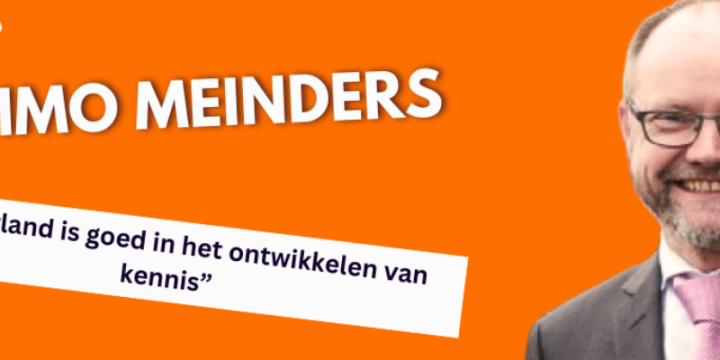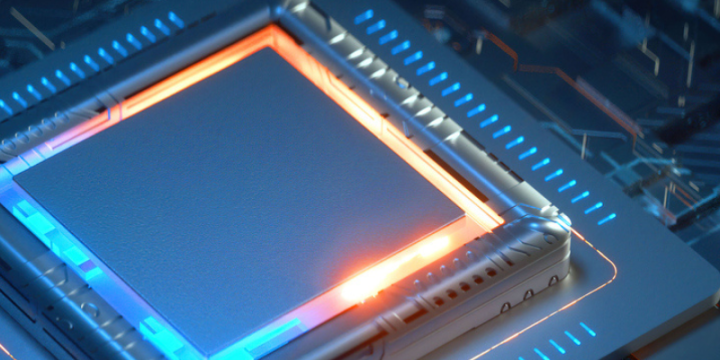With 4 billion euros from the National Growth Fund, substantial investments are being made in long-term economic growth and future prosperity. A total of 18 projects received approval, with 1.9 billion euros of those awards still subject to conditions. A significant part of the 4 billion goes to projects in high-tech innovation or projects that allow the ecosystem to flourish and strengthen the high-tech.
National Growth Fund high-tech projects
- Material Independence & Circular Batteries
- 6G Future Network Services
- Polaris
- Circular integrated high-efficiency solar panels | SolarNL
- Growing with Green Steel
- Charging Energy Hubs
Projects for a better high-tech ecosystem
- Delta Plan Valorisation
- Investing in the talent for the future!
- Creative Industries Immersive Impact Coalition (CIIIC)
Read the summary of all projects below and click through for the full project descriptions.
Material Independence & Circular Batteries
Battery technology plays a crucial role in the energy transition as a storage system for (green) energy, both for grid stabilization and for electrification of the mobility sector. This program aims to position the Netherlands in key areas of the battery value chain in order to reduce dependence on international suppliers of critical materials and battery components. EUR 118 million has been granted conditionally for this project and EUR 178 million has been reserved for a project duration of 8 years (2024 - 2031).
Battery Competence Cluster - NL is leading the project in collaboration with the Ministry of Economic Affairs and Climate. The consortium consists of a broad group of large companies, SMEs, start-ups, scale-ups, knowledge and educational institutions.
6G Future Network Services
The ambition is to make the Netherlands one of the leaders in 6G by developing hardware and software and developing specific applications. EUR 61 million has been awarded conditionally and EUR 142 million has been reserved with a project duration of 6 years (2024 - 2029).
The FNS project proposal was submitted by the Ministry of Economic Affairs and Climate Policy on behalf of a consortium of 60 market parties and knowledge institutions. The leaders of the program lines areTNO, TU Eindhoven en TU Delft. Other participants in the consortium include semiconductor manufacturers (NXP, Ampleon), telecom operators (KPN, T-Mobile), telecom suppliers (Nokia, Ericsson) and ICT companies.
Polaris
Polaris (Pathway towards Opportunities for Large scale Applications of Radically Integrated Systems) focuses on the further development and application of micro-electrical Radio Frequency (RF) systems by combining (fundamental) research and various ecosystems in order to improve the technological and economic position of the Netherlands. The project proposal has been submitted by the Ministry of Defence. 102 million euros have been awarded conditionally with a project duration of 8 years (2024 - 2031).
The consortium consists of Thales, Philips, NXP, Sencio, Altum RF, Bronkhorst High-tech, the University of Twente, TU Delft, TU Eindhoven, TNO and CITC. The regional development companies (ROMs) Oost NL and BOM are also involved.
Circular integrated high-efficiency solar panels | SolarNL
Energy from sunlight (solar PV) will play a major role in the energy transition; globally, solar PV is on the verge of growing to the “terawatt” scale. In the Netherlands, solar PV generation capacity will grow from 18 GWp in 2022 to 100-250 GWp in 2050. This project creates and industrialises an innovation ecosystem for local development of new sustainable solar PV technologies, aimed at future earning power for the coming decades. EUR 135 million has been definitively and EUR 277 million conditionally allocated for this project with a project duration of 8 years (2024 - 2031).
The project proposal was submitted by the Ministry of Economic Affairs and Climate Policy (EZK). SolarNL is carried out by a consortium of nine Dutch solar PV companies, six universities, NWO Institute AMOLF, TNO and four universities of applied sciences.
Growing with Green Steel
The Growing with Green Steel project aims to accelerate the transformation to a sustainable steel sector by five years and thereby build a strong international competitive position. The project aims to achieve this by implementing circular chains and reducing emissions. The project aims to reduce CO2 emissions by 30 percent and other harmful emissions by 50 percent.
The consortium behind the project, led by the Materials innovation institute (M2i), consists of various research institutions and important players in the steel sector such as Tata Steel Netherlands, Philips, VDL and several SME manufacturing companies. 124 million has been definitively allocated with a project duration of 8 years (2024 - 2031).
Charging Energy Hubs
The Charging Energy Hubs project aims to accelerate the electrification of the logistics sector by combating grid congestion. The current electricity network and existing laws and regulations are not suitable for the increasing demand for electricity for zero-emission vehicles.
The project focuses on developing technological innovations that enable the integration of charging infrastructure, battery storage and renewable energy sources within the existing electricity grid. By removing financial, legal and organizational barriers, the electrification of the logistics sector can be accelerated.
This is being realized within the multidisciplinary consortium consisting of Brainport Development and RAI Automotive Industry NL. For this project, 44 million euros have been definitively allocated with a project duration of 4 years (2024 - 2028).
Deltaplan Valorisation
The Delta Plan Valorisation project improves the Dutch knowledge position by expanding the valorisation system of universities and colleges. The Delta Plan Valorisation supports the high-tech sector by stimulating spin-offs and converting research results into social applications. This contributes to the development of new high-tech companies and technological innovations. 417 million euros has been reserved for this project, with a project duration of 8 years (2023 - 2030).
This National Growth Fund proposal has been drawn up by a consortium of the Ministry of Education, Culture and Science, the Ministry of Economic Affairs and Climate, Universities of the Netherlands, Dutch Federation for University Medical Centers, Association of Universities of Applied Sciences, TO2 Federation and the Regional Development Companies. These parties are joining forces to give an impulse to strengthening the valorisation landscape in the Netherlands.
In addition, other participating parties are involved in this proposal, such as the supporters of the above-mentioned umbrella organisations, NWO, RVO, SME-Netherlands and private investors
Investing in the talent for the future!
The prosperity and earning capacity of the Netherlands depend strongly on sufficient technically trained personnel and the skills of personnel in all sectors to deal with new technological and digital developments. However, interest among young people in technology (including ICT) and (beta) technical courses is declining. The aim of this project is:
- More affinity with, knowledge of and professional skills in technology among all young people
- More students opting for science subjects in HAVO and VWO and a higher intake in (beta) technical follow-up studies
- Via a one-off impulse at 80 regional networks, the proposal aims to raise technology education to a higher level, promote a technology-inclusive culture and develop stimulating national policy frameworks
A sum of 352 million euros has been reserved for this project with a project duration of 8 years (2024 - 2031).
Het ministerie van Onderwijs, Cultuur en Wetenschap is indiener en voert regie in de uitvoering, mede namens het ministerie van Economische Zaken en Klimaat. Platform Talent voor Technologie is penvoerder. In het project wordt voortgebouwd op de inzet van een brede coalitie, bestaande uit alle relevante doelgroepen, zoals scholen, bedrijven, sociale partners, overheidsorganisaties en buitenschoolse leeromgevingen.
Creative Industries Immersive Impact Coalition (CIIIC)
This project focuses on strengthening the industry focused on Immersive Experiences (IX). IX wants to immerse the user in an alternative digital reality. Techniques such as augmented reality and Virtual Reality are used for this.
The Ministry of Education, Culture and Science submitted this project. A total of 120 parties from the business community, knowledge institutions, government and public organizations are involved in the proposal. The implementation of the proposal will be entrusted to CLICKNL, the Top Consortium for Knowledge and Innovation for the creative industry. The subsidy instruments are implemented by RVO and NWO.





